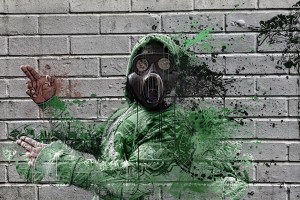
New York: Almost eight years after the United Nations Security Council mandated the destruction of Syria’s chemical weapons programme, the Organisation for the Prohibition of Chemical Weapons (OPCW), tasked with effectuating that goal, continues to face challenges, including unaddressed discrepancies and insufficient cooperation, Izumi Nakamitsu, Under-Secretary-General and High Representative for Disarmament Affairs, has told the Security Council.
Nakamitsu briefed the 15‑member organ on her Office’s recent engagement with its counterparts at the Organisation for the Prohibition of Chemical Weapons (OPCW), on October 4, 2021. She said that because of OPCW’s Technical Secretariat’s assessment regarding unresolved discrepancies and inconsistencies, the declaration submitted by Syria still cannot be considered accurate and complete in accordance with the Chemical Weapons Convention.
“It is only through complete cooperation by the Syrian Arab Republic with the OPCW Technical Secretariat that all outstanding issues related to the Syrian Arab Republic’s initial declaration can be closed,” she emphasized. The OPCW Technical Secretariat still plans to conduct two rounds of inspections of the Barzah and Jamrayah facilities of the Syrian Scientific Studies and Research Centre. However, these plans remain subject to evolving conditions on the ground, due to the COVID‑19 pandemic.
The Syrian Government had confirmed its readiness to engage in a twenty‑fifth round of consultations with the OPCW’s Declaration Assessment Team later in the month, she reported. However, it has refused to issue an entry visa to one of the experts. “Given this situation, the Technical Secretariat confirmed that it would not deploy the Team to Syria,” she said.
As Council members took the floor, many of them expressed concern about the continuing stalemate between OPCW and Syria, with some calling for greater compliance from Syria and more decisive measures to ensure its accountability, while others called for an end to politicalizing the process and stressing the need for greater cooperation and goodwill to be fostered between the two parties.
The representative of the United States, voicing his disagreement, underscored that there is overwhelming evidence the Syrian regime has utterly failed its obligations under the Convention. “Despite the Assad regime’s denials, as many as four separate chemical attacks have now been attributed to the regime by the OPCW’s Investigation and Identification Team. The Council should impose measures under Chapter VII of the Charter of the United Nations against the regime and take resolution action to address Syria’s non‑compliance,” he said.
Russia’s representative, however, averred that OPCW has turned into a politicized instrument used by Western States to punish unwanted regimes.
Syria’s representative too said he stood against the efforts of some States to use OPCW as a tool against his country. Noting that the Declaration Assessment Team is not an investigative team, but a team which will help the Syrian authorities present their declaration, he defended his country’s decision to refuse an entry visa to a member of the OPCW’s Team. The expert had proved to be non‑objective in the past and could easily be replaced.
More so, he highlighted how Syria had voluntarily joined the Chemical Weapons Convention and met all its obligations in record time. ” Despite statements by some States, which prove that they continue to turn a deaf ear to the truth, Syria is cooperating with OPCW and is keen to close the file as soon as possible,” he said.
– global bihari bureau





